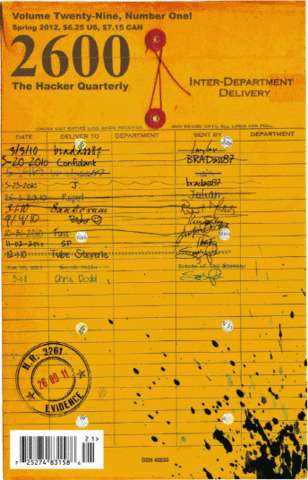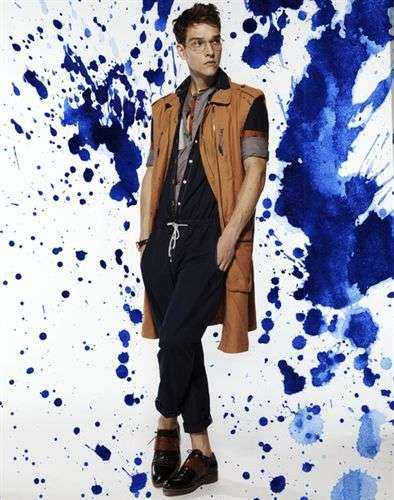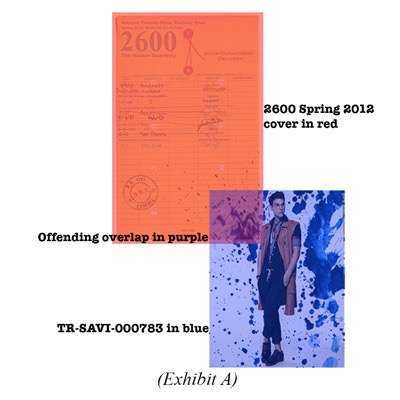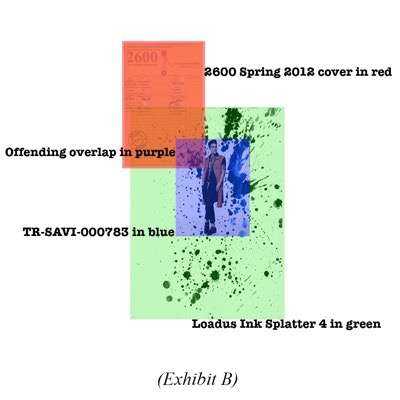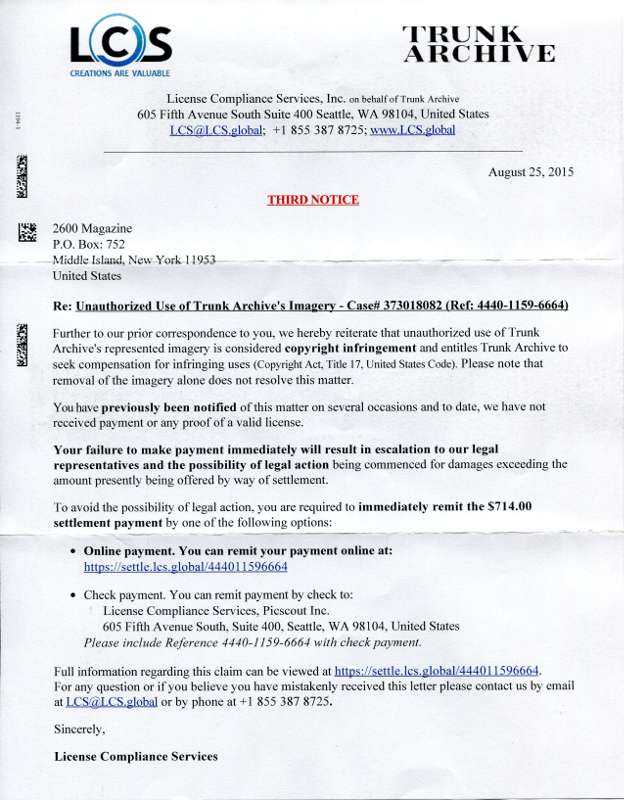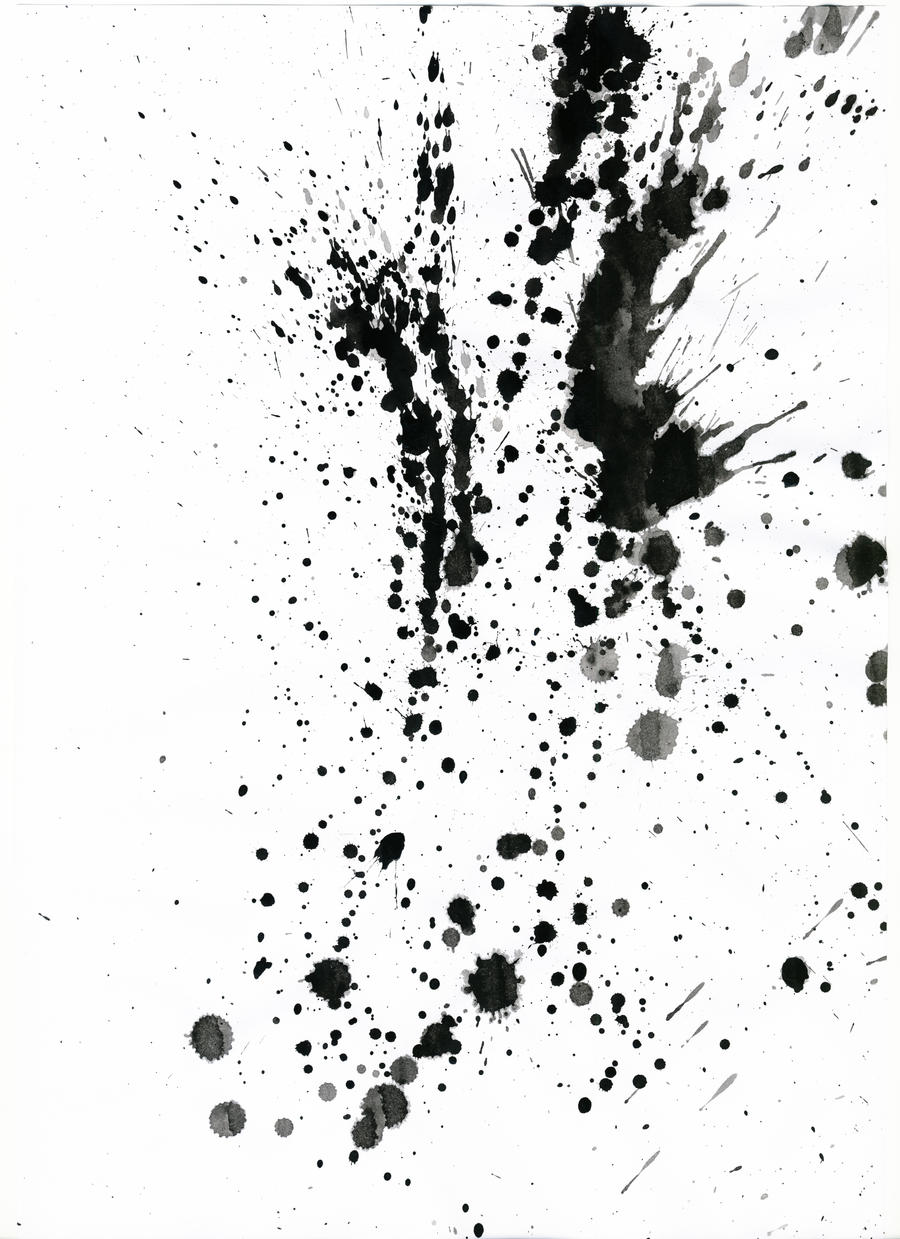The Splotchgate Saga
It was sometime over the summer when we received the first threat.
We get our fair share of nasty letters, so it's not always possible to give each one the attention it deserves. After a couple more of them came in, it didn't take long for us to realize that this one was something special.
The letters came from License Compliance Services at an establishment known as Trunk Archives. They said our Spring 2012 cover was considered copyright infringement and that we owed them $714.
As evidence, they showed us two images that looked nothing like each other:
Computer algorithms had detected a match in a small part of an ink splotch graphic. This is what they spend their time doing - searching the entire Internet for any instance of matching imagery.
It doesn't stop there, of course.
Copyright trolls (as such entities are disparagingly referred to by many) seek to find similar instances in audio, video, and anything else that can be represented in digital form. If we gave them only a little more leeway, we're certain they'd be able to claim the rights to specific colors and musical notes.
This kind of thinking is why simple creativity is in a constant battle with corporate might. It's why Google flags your YouTube videos, why Internet radio is crippled with fees for basically helping to promote artists, and it's why you'd better be sure you're all paid up if someone even whistles part of a recognizable melody in that documentary you're making.
The scariest part is that every year the technology to do this sort of thing gets much better.
We were all too aware of how insane this practice was - and we knew we had to fight back. When a company can seriously threaten people over an ink splotch, it's time we all had a little reality check.
But then we discovered something even more surprising.
We did a bit of investigating (at great time and expense, not to mention the emotional toil) and found that the source of the ink splotch was a Finnish artist named Loadus who had specifically made it public domain - free for anyone to use.
Somehow Trunk Archives got it into their heads and algorithms that they owned the image.
But they didn't.
They had merely used it as a background for one of their images and apparently didn't bother to differentiate:
So not only were we being threatened for something as absurd as an ink splotch, but we were being threatened by people who had absolutely no rights to it in the first place! At least, no rights beyond what everyone else in the world also had. In a way, it was disappointing because the case suddenly became so ridiculous that we never had the opportunity to actually fight to win it.
At this point, the Internet stepped in and spread the story far and wide.
It didn't take long for us to get a terse note from License Compliance Services which simply said "Hello, I just wanted to take a moment to inform you that after further review this matter has been closed."
That was followed several days later by an actual apology from the Chief Operating Officer at Trunk Archives, who wrote:
"As COO of Trunk Archive, I would like to offer my sincere apologies for 'Ink Splotch-gate.' Artist attribution and copyright protection are very important to us, so we truly regret this case of 'mistaken identity.' Using a digital copyright infringement service is a relatively new thing for us and we have learnt a lot about what can go wrong through the comments made by 2600 and the community at large. Thanks for all the feedback and please feel free to reach out to me with any questions or thoughts on this matter. Once again... very sorry for our error."
While acknowledging this problem is a good first step, it's still just a first step.
The bigger problem remains.
Threats like these go out constantly for absurdly minor uses of material that are often completely protected as transformative work under the fair use doctrine. The average person doesn't have the time or resources to do battle with these accusations and so, far more often than they should, they wind up paying the demanded amount.
This has got nothing at all to do with compensating artists, who are often horrified to hear of the actions being taken allegedly in their names. This is about intimidation, power, and the quelling of creativity.
We would have an interesting time going back in history to see how many derivative and transformative works would never have been created had entities like Trunk Archive, Getty Images, License Compliance Services, Picscout, etc. been around to silence them with their digital services.
This little episode woke us up to the danger.
We hope documenting it here helps to get a lot more people involved in fighting this unhealthy trend.
